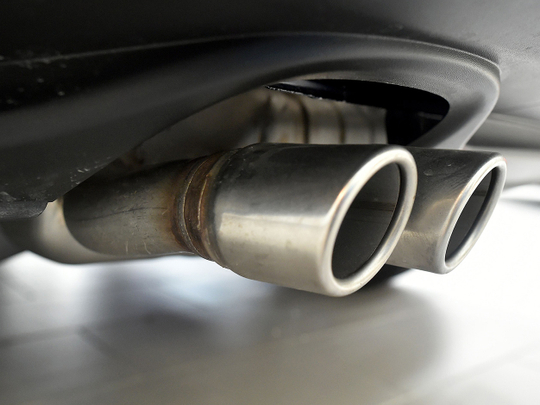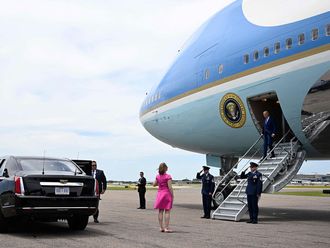
Washington: Volkswagen AG and the US Justice Department have reached a deal in principle to address excess diesel emissions in nearly 600,000 polluting vehicles that will include buy-back offers and a possible fix, a federal judge in San Francisco said on Thursday.
US Judge Charles Breyer said the settlement is expected to include a buy-back offer for 482,000 2.0-litre vehicles and a possible fix if regulators agree on it, or the cancellation of an outstanding lease.
Two people briefed on the matter and several analysts say VW may have to spend more than $10 billion to comply with the US
agreement.
The settlement is a major step toward the German automaker’s efforts to move past the issue that first came to light in September when VW admitted to using sophisticated secret software in its cars to cheat exhaust emissions tests, unleashing a scandal dubbed Dieselgate in the media.
The US settlement will include an environmental remediation fund to address excess emissions and additional “substantial compensation” to owners to sell back or have their vehicles fixed, Breyer said.
The deal is expected to settle more than 600 class action civil suits filed in US courts.
VW said in a statement it “has reached an agreement on the basic features of a settlement with the class action plaintiffs in the lawsuit in San Francisco. This agreement will be incorporated into a comprehensive settlement in the coming weeks.” VW said the deal “will have no legal bearing on proceedings outside of the United States.” The US government and Volkswagen have until June 21 to complete a final “consent decree” that will face public comment and need judicial approval before taking effect, the judge said.
VW will commit additional funds to “promote other green automotive technologies,” Breyer said.
‘Winning back the trust’
“Volkswagen is committed to winning back the trust of its customers, its dealers, its regulators and all of America,” said VW lawyer Robert Giuffra. The agreements are “an important step forward on the road to making things right,” Giuffra added.
The Justice Department has an ongoing criminal investigation into VW’s conduct that is not impacted by the settlement.
“The department’s other investigations into VW’s conduct remain active and ongoing,” department spokesman Wyn Hornbuckle said in a statement.
The deal will offset all environmental harms and fully compensate owners, Giuffra said.
Breyer said the agreement does not cover nearly 90,000 larger cars and SUVs with 3.0-litre engines that is a separate excess emissions issue. The judge said he expects that the issues of Justice Department fines and resolving the 3.0 litre engines will be addressed “expeditiously.” Volkswagen spokeswoman Jeannine Ginivan said in a statement that customers do not need to take any action immediately. The earliest any buy-backs would begin is likely in July after a judge approves the settlement.
“The agreements in principle are an important step on the road to making things right. Volkswagen intends to compensate its customers fully and to remediate any impact on the environment from excess diesel emissions.” Reuters first reported many of the details on Wednesday of the settlement including the buy-back offer.
Reuters reported that owners will get around two years to decide whether to sell their vehicles back including the 2009-2015 diesel Jetta and will be offered the estimated value of the vehicles from September 2015 — before the scandal became public — along with an unspecified premium.
Regulators and prosecutors around the world are investigating VW in the aftermath of its September admission.
VW’s use of the software allowed 11 million vehicles to emit up to 40 times legally allowable emissions levels.
The scandal prompted the resignation of then-CEO Martin Winterkorn, and VW’s top US executive, Michael Horn, abruptly stepped down in March.
Breyer said he was imposing a gag order on all the parties until a final agreement is reached.












